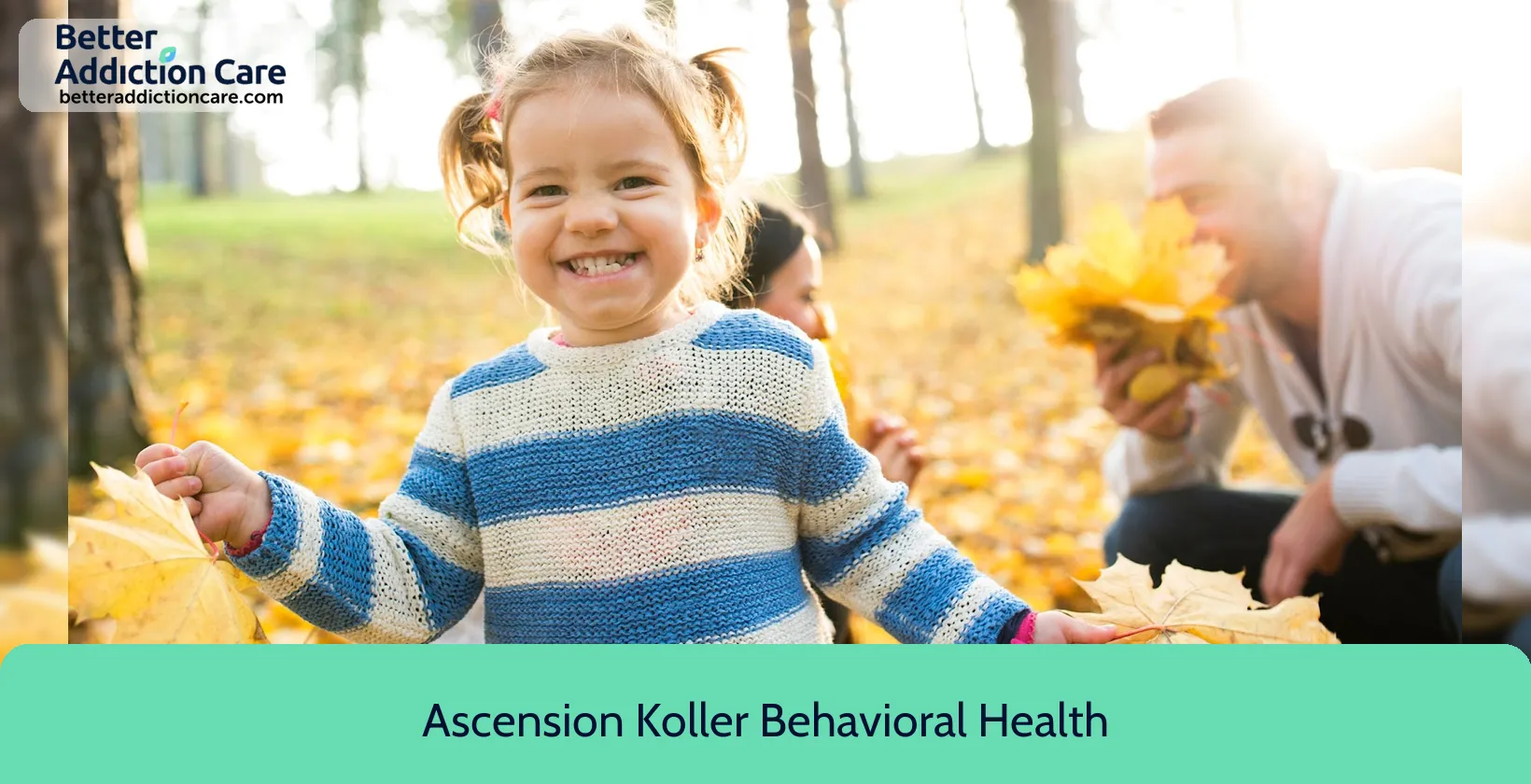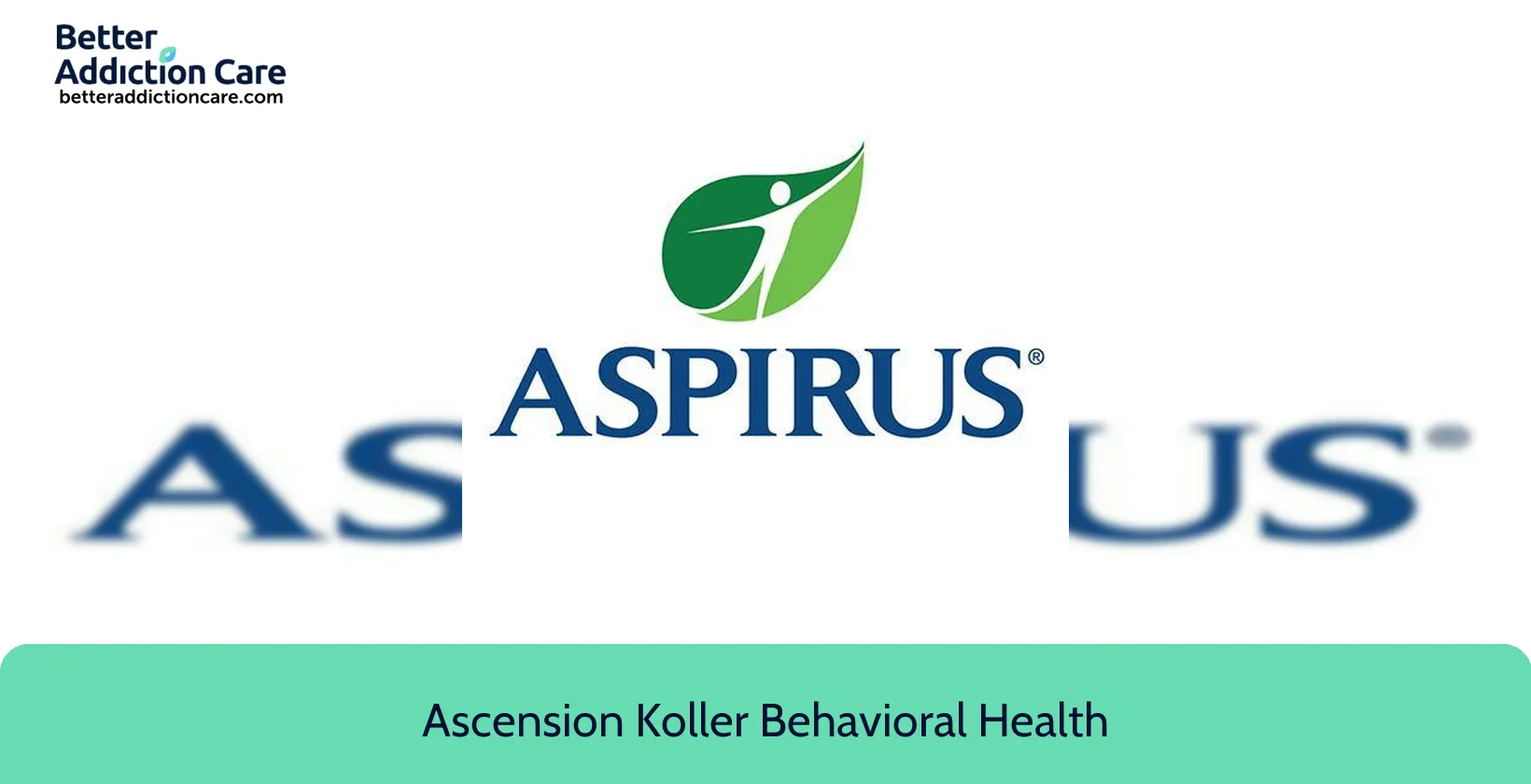Ascension Koller Behavioral Health
Overview
Ascension Koller Behavioral Health is a mental health treatment center for people seeking treatment near Oneida County. As part of their treatment modalities for recovery, Ascension Koller Behavioral Health provides individual psychotherapy, couples/family therapy, and cognitive behavioral therapy during treatment. Ascension Koller Behavioral Health is located in Rhinelander, Wisconsin, accepting cash or self-payment for treatment.
Ascension Koller Behavioral Health at a Glance
Payment Options
- Cash or self-payment
- Medicaid
- Medicare
- Private health insurance
- Federal military insurance (e.g., TRICARE)
Assessments
- Screening for tobacco use
- Comprehensive mental health assessment
- Comprehensive substance use assessment
- Screening for mental disorders
- Screening for substance use
Age Groups
- Children/adolescents
- Young adults
- Adults
- Seniors
Ancillary Services
- Case management service
- Specially designed program for DUI/DWI clients
- Mental health services
Highlights About Ascension Koller Behavioral Health
6.99/10
With an overall rating of 6.99/10, this facility has following balanced range of services. Alcohol Rehabilitation: 8.00/10, Drug Rehab and Detox: 6.00/10, Insurance and Payments: 6.27/10, Treatment Options: 7.70/10.-
Alcohol Rehabilitation 8.00
-
Treatment Options 7.70
-
Insurance and Payments 6.27
-
Drug Rehab and Detox 6.00
Accreditations
The Joint Commission:

The Joint Commission accreditation for addiction and behavioral health signifies that a facility has met rigorous standards in patient care, treatment, and safety. This recognition assures patients and professionals of the facility's commitment to providing high-quality, evidence-based care in the fields of addiction and behavioral health, fostering trust and confidence in their services.
Treatment At Ascension Koller Behavioral Health
Treatment Conditions
- Mental health treatment
- Alcoholism
- Substance use treatment
- Co-occurring Disorders
Care Levels
- Outpatient
- Regular outpatient treatment
Treatment Modalities
- Individual psychotherapy
- Couples/family therapy
- Cognitive behavioral therapy
- Integrated Mental and Substance Use Disorder treatment
- Telemedicine/telehealth therapy
Ancillary Services
Languages
- Sign language services for the deaf and hard of hearing
Additional Services
- Pharmacotherapies administered during treatment
- Self-help groups
- Drug or alcohol urine screening
Special Programs
- Clients who have experienced trauma
Get Help Now
Common Questions About Ascension Koller Behavioral Health
Contact Information
Other Facilities in Rhinelander

7.11

6.96
DISCLAIMER: The facility name, logo and brand are the property and registered trademarks of Koinonia Residential Treatment Center, and are being used for identification and informational purposes only. Use of these names, logos and brands shall not imply endorsement. BetterAddictionCare.com is not affiliated with or sponsored by Koinonia Residential Treatment Center.


